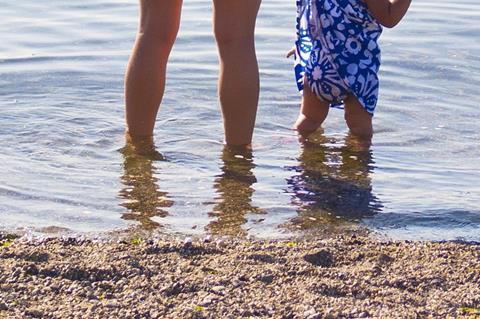Following the devastation of Hurricane Idalia, health authorities are urgently cautioning beachgoers to remain vigilant as floodwaters may harbour Vibrio vulnificus, a rare and deadly flesh-eating bacterium.

Florida’s Health Department emphasised the importance of treating this threat seriously, comparing it to respecting alligators and rattlesnakes.
The risk of Vibrio infections has surged in coastal regions of Florida, Georgia, and the Carolinas due to Idalia’s storm surges mixing salty seawater with heavy rainfall, creating ideal conditions for the bacteria to thrive.
V vulnificus, among various Vibrio types, is the most dangerous and infects about 80,000 individuals in the US annually, resulting in approximately 100 deaths, with numbers rising after hurricanes.
Proper respect
The rare and potentially deadly type of flesh-eating bacterium “shouldn’t be taken lightly,” Florida Health Department press secretary Jae Williams told NBC News. “It needs to be treated with proper respect - the same way we respect alligators and rattlesnakes.”
Infections typically occur through skin cuts while wading through contaminated water, causing rapid tissue destruction.
Immediate medical attention and antibiotics are crucial, as Vibrio is among the fastest-growing bacteria. In severe cases, amputation may be necessary, and fatalities can occur within a day of exposure.
The bacteria favour places where warm, salty seawater mixes with freshwater, like estuaries and inlets, and hurricanes can make these conditions happen.
Perfect conditions
“The rainwater, being freshwater, dilutes the seawater and brings the salinity down,” said James Oliver, a retired professor of microbiology at the University of North Carolina, Charlotte. That mixture creates the perfect condition for the bacteria to thrive and spread.
Consuming raw oysters represents another infection route, as oysters filter water through their gills, potentially containing Vibrio.
V vulnificus infects around 80,000 people in the United States each year, resulting in approximately 100 deaths, according to the Centers for Disease Control and Prevention.
Warmer waters have expanded the geographic reach and frequency of Vibrio cases, increasing the risk for people along the southeastern US coast, including states like Alabama, Florida, Georgia, Louisiana, and Mississippi.







No comments yet